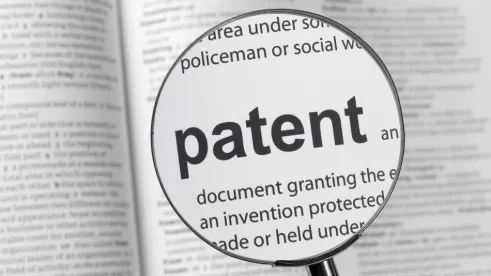Takeaway: A significant delay in filing a request for additional discovery once a party becomes aware of the existence of the items sought to be discovered can result in the Board denying the request.
In its Order, the Board denied Patent Owner’s Motion for Discovery. Patent Owner sought discovery of certain sales agreements. Petitioner had purchased seven bottling machines from GEA Process Engineering, Inc. (“GEA”) and GEA’s predecessor, Procomac SpA. These seven machines were purchased in three groupings: (1) lines 1–5, (2) line 6/7, and (3) line 8. Patent Owner contends that the sales agreement(s) it seeks pertain to lines 1–5 and 6/7, and will likely establish that Petitioner had the right to control the GEA litigation.
Patent Owner argued that Exhibits 1031–1033 are only part of the sales agreements and because Petitioner has referred to part of that agreement, Petitioner must provide the entire agreement. Moreover, Patent Owner argued that Petitioner is obligated to produce the requested agreements as routine discovery because they are inconsistent information under 37 C.F.R. § 42.51(b)(iii). As for additional discovery, Patent Owner asserted that (1) there is more than a possibility and mere allegation that the bottle filling machines were built to Petitioner’s specifications, (2) the information sought is non-privileged information which cannot be effectively obtained by other means, (3) the materials sought are readily identifiable, and (4) production of the agreement(s) sought will not be burdensome.
Regarding lines 1-5, Patent Owner asserted that because the machines were similar to those furnished by the same supplier (GEA), it is beyond mere speculation that similar specifications were provided by Petitioner to GEA for the purchase. The Board stated that Patent Owner failed to demonstrate that regardless of which jurisdiction’s law applies to the purchase, Petitioner would be required to defend GEA. Thus, any sales agreements related to lines 1-5 do not fit Patent Owner’s privity argument based on indemnity.
Patent Owner argued, regarding line 6/7, that Petitioner initially refused to allow Patent Owner to refer to Exhibits 2072 and 2073, and only when Patent Owner brought a motion in the District Court seeking relief from the protective order did Petitioner agree, on January 4, 2016, that Patent Owner may refer to those documents. However, the Board noted that Petitioner had informed Patent Owner of those exhibits related to lines 1-5 and 6/7 on May 22, 2015. The Board also concluded that Patent Owner’s assertions regarding line 6/7, even if true, do not support any more of a privity relationship between GEA and Petitioner than what is already reflected in the record. The Board also concluded that Patent Owner’s request is overly burdensome because Patent Owner seeks the entire agreements to include any associated technical specifications, and not just those provided by Petitioner, and any annexes.
Thus, the Board concluded that Patent Owner waited too long to make the instant request once it became aware of its existence. Further, Petitioner did not cite a sales agreement for line 6/7, and therefore 37 C.F.R. § 52.51(b)(1)(i) does not require production of such agreement. The Board also concluded that Patent Owner had not demonstrated that the sales agreements are inconsistent with Petitioner’s assertion that line 6/7 was not custom built to Petitioner’s specifications. Lastly, the Board determined that Patent Owner’s request for additional discovery would not be in the interests of justice.
NESTLÉ HEALTHCARE NUTRITION, INC. v. STEUBEN FOODS, INC., IPR2015-00195, -00249
Papers 71: Denying Patent Owner’s Motion for Discovery
Dated: January 19, 2016
Patents: 6,475,435, 6,481,468
Before: Michael P. Tierney, Phillip J. Kauffman, Rama G. Elluru, Beverly M. Bunting, and Christopher G. Paulraj
Written by: Kauffman



 />i
/>i

